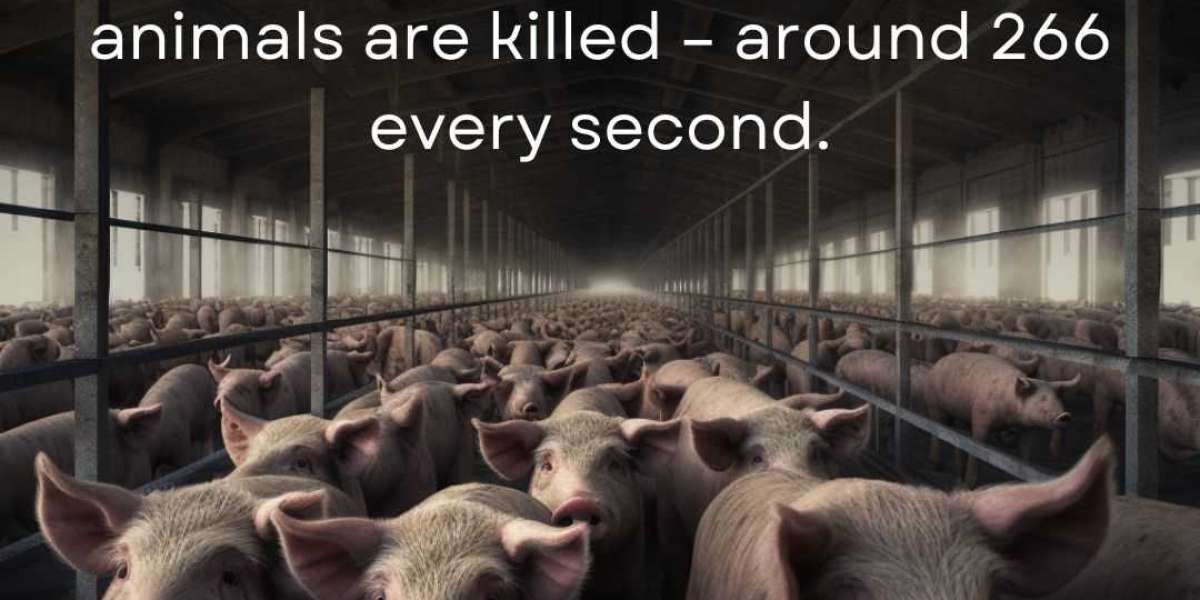The Evolution and Importance of Animal Rights: A Call for Compassion and Change Introduction Animal rights have become a significant topic of discussion in modern society, reflecting our evolving relationship with non-human species. The concept of animal rights emphasizes that animals are entitled to live free from exploitation, abuse, and suffering at the hands of humans. Over the years, this movement has gained momentum, fueled by ethical considerations, scientific discoveries, and a growing awareness of the interconnectedness of all life forms. This article delves into the history, significance, and future of animal rights, arguing that protecting animals is not just a moral obligation but also essential for the sustainability of our planet. The Historical Context of Animal Rights The idea of animal rights is not a recent phenomenon. Philosophers and thinkers have long debated the moral status of animals. In ancient Greece, the philosopher Pythagoras advocated for vegetarianism, believing that all living beings possessed souls. Similarly, in India, the principle of ahimsa, or non-violence, which includes kindness towards animals, has been central to various religious and philosophical traditions for thousands of years. In the Western world, the formal discussion of animal rights began to take shape in the 18th and 19th centuries. The philosopher Jeremy Bentham, a key figure in the development of utilitarian ethics, famously questioned, "The question is not, Can they reason? nor, Can they talk? but, Can they suffer?" This marked a significant shift in how animals were perceived, focusing on their capacity for suffering rather than their utility to humans. The 20th century saw the emergence of more organized efforts to protect animals. The animal rights movement gained momentum in the 1970s with the publication of Peter Singer's Animal Liberation. Singer's work challenged the prevailing view that animals existed for human use and introduced the concept of speciesism—the idea that discriminating against animals simply because they belong to a different species is morally unjustifiable. Since then, the movement has continued to grow, with numerous organizations, activists, and scholars advocating for the rights of animals. The Ethical Basis for Animal Rights At the heart of the animal rights movement is the belief that animals, like humans, have intrinsic value and deserve to be treated with respect and dignity. This view challenges the traditional anthropocentric perspective, which places humans at the center of moral consideration and regards animals as mere resources. The ethical arguments for animal rights are varied and complex. Some advocate for animal rights from a deontological perspective, which posits that animals have inherent rights that must be respected regardless of the consequences. Others, like Singer, adopt a utilitarian approach, arguing that the capacity to suffer is the basis for moral consideration and that we should minimize suffering for all sentient beings, regardless of their species. A key ethical issue in the animal rights debate is the question of whether animals can possess rights similar to those of humans. Critics often argue that animals lack the cognitive abilities required for rights and responsibilities. However, proponents of animal rights counter that the capacity for suffering, not cognitive ability, should be the primary criterion for moral consideration. They argue that just as we extend rights to vulnerable humans—such as infants or those with cognitive disabilities—who cannot assert their rights or fulfill responsibilities, we should do the same for animals. Animal Rights in Practice: Challenges and Progress While the ethical case for animal rights is compelling, putting these principles into practice presents significant challenges. Society is deeply entrenched in practices that exploit animals, from factory farming and animal testing to entertainment and fashion. Changing these practices requires not only ethical reflection but also significant cultural, economic, and political shifts. One of the most pressing issues in the animal rights movement is factory farming. The industrialization of animal agriculture has led to the widespread mistreatment of animals, with billions of animals living in cramped, unsanitary conditions and suffering from physical and psychological distress. Animal rights activists argue that these practices are not only cruel but also environmentally unsustainable, contributing to deforestation, climate change, and the depletion of natural resources. Animal testing is another area of concern. While some argue that testing on animals is necessary for medical and scientific advancements, others contend that alternative methods are available and that the suffering inflicted on animals is unjustifiable. The development of new technologies, such as in vitro testing and computer modeling, offers promising alternatives to animal testing, but widespread adoption of these methods has been slow. In the realm of entertainment, animals have long been used for human amusement, from circuses and zoos to movies and sports. However, there is growing recognition that these practices often involve significant suffering for the animals involved. In recent years, there has been a shift towards more humane forms of entertainment, with some circuses eliminating animal acts and more public support for wildlife sanctuaries and documentaries that showcase animals in their natural habitats. Despite these challenges, there has been progress in advancing animal rights. Legislation protecting animals from cruelty has been enacted in many countries, and there is increasing awareness of the ethical and environmental implications of our treatment of animals. For example, the European Union has implemented strict regulations on animal welfare in farming and testing, and several countries have banned the use of animals in circuses. Moreover, the rise of plant-based diets and the growing popularity of veganism reflect a broader cultural shift towards more compassionate and sustainable ways of living. The Future of Animal Rights The future of animal rights will likely depend on a combination of ethical advocacy, scientific advancements, and societal changes. As we continue to learn more about the cognitive and emotional capacities of animals, the case for their protection becomes stronger. Additionally, the development of new technologies, such as lab-grown meat and cruelty-free testing methods, offers the potential to reduce or eliminate many forms of animal exploitation. Education and awareness will also play a crucial role in advancing animal rights. By fostering empathy and understanding, we can inspire more people to adopt compassionate lifestyles and advocate for policies that protect animals. This will require challenging deep-seated cultural norms and confronting the economic interests that benefit from the exploitation of animals. Moreover, the fight for animal rights is increasingly intertwined with other social justice movements. Environmental degradation, climate change, and human rights abuses are often linked to the exploitation of animals. Recognizing these connections can help build a more comprehensive and inclusive movement for justice and sustainability. Conclusion Animal rights represent a fundamental challenge to the way we view and treat non-human species. It calls for a shift in perspective, from seeing animals as commodities to recognizing them as sentient beings deserving of respect and protection. While significant obstacles remain, the progress made so far offers hope for a future in which animals are treated with the compassion and dignity they deserve. As we continue to confront the ethical, environmental, and social implications of our treatment of animals, the animal rights movement will remain a vital force for change in our world.
Top of Form Bottom of Form |








